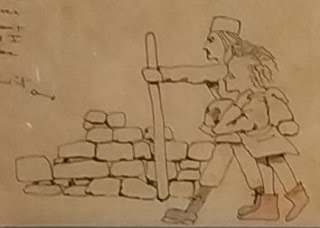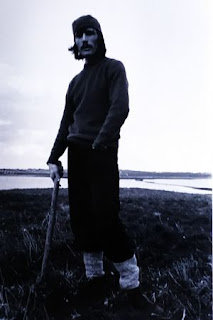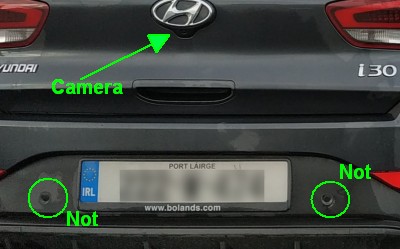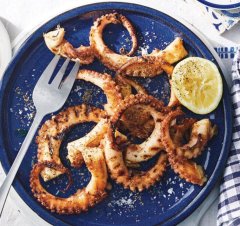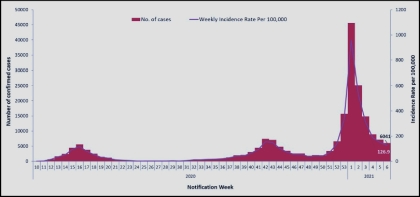'Tis the End of Days, lads. After a Summer of no rain at all, we got a Summer's worth of wet in 48 hours. A couple of weeks after that, we had a deluge in daylight. Naturally, I stripped down to shorts and a tee-shirt to save the surface of the lane from being swept to buggery. There's no point in putting on Cape Horn foul-weather gear [even if I had it] because everything would be soaked anyway and it's easier to dry a single tee than a shirt and sweater and "rain" coat. Got a few tsk tsks from my roomies about silly old men courting a trip to the hospital; but the risk to me was minimal and the risk to my wallet considerable if I sat out the storm on my sofa.
But when the second waterbutt-filler happened at the beginning of September, I could not find my Javi = azada = fartanya = mattock [as R]. I have two, of different sizes with replacement handles and I had to use a long-handled shovel which is not the tool of choice for scraping crap out of a drain. Shag this, I said the following day, I R retire, I have four pensions dribbling in from two countries, I should really be giving back to the economy. Forthwith I ventured onto the broad reaches of the interwebs, to see who would sell me a new azada. Lenehans of Capel Street had a heavy-duty digging hoe in stock for €30 . . . free delivery for orders over €50. Having, like Mr Worthing, just lost bothLenehans used to be an old fashioned city centre hardware store but they have embraced the internet: claiming to be what3words, as well as eircode, enabled andn taking my e-money with the least possible fuss. My brace of azadas came bundles up in cardboard and sticky tape less than 48 hours after I placed my order. Several e-mails came in parallel, tracking the delivery from warehouse to clearing to depot to van. And when the order was fulfilled, another e-mail directed me to Trustpilot to share the experience:
Lenehans had what I needed 14/Sep/2022
Lenehans had what I needed, at a competitive price, and shipped it quickly and reliably.
Q. What more could you want?
A. A ham and cheese toastie!
Date of experience: 08 September 2022
Reply from Lenehans.ie 20/Sep/2022
Thank you for your review. We appreciate you taking the time to respond and look forward to providing excellent service to you again in the future.
We can't help with the ham and cheese but we do stock sandwich toasters ;)
https://www.lenehans.ie/searchanise/result?q=sandwich%20toaster
Kind regards,
Lenehans.ie












